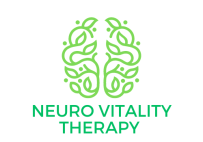People may associate strokes with changes in walking/mobility, strength, speech and power. However, not all issues following a stroke are obvious! The crude term 'walking wounded' describes such people. Cognitive issues attention (concentration) visual processing (eyesight and depth perception), information processing (taken on and interpreting information), memory and executive functioning (awareness, planning, organisation, impulse control) are all areas that could be affected by a stroke. Do not despair as help is at hand. Read one to find out how Neuro Vitality Therapy can help you post stroke.

Occupational therapists (OTs) are trained to address the holistic needs of stroke survivors, focusing on helping them perform meaningful daily activities. In cognitive rehabilitation, OTs use evidence-based techniques to:
1. Assess Cognitive Abilities
Occupational therapists begin with a comprehensive evaluation to identify specific cognitive strengths and weaknesses. They may use standardized assessments, functional tasks, and patient interviews to create a tailored therapy plan.
2. Rebuild Cognitive Skills
Through targeted exercises, OTs help survivors practice and strengthen cognitive functions:
• Memory retraining: Using strategies like mnemonic devices, memory aids, or repetition.
• Attention-building tasks: Gradually increasing focus duration through structured activities.
• Problem-solving exercises: Engaging in real-life scenarios to improve decision-making.
3. Implement Adaptive Strategies
When full recovery isn’t possible, OTs teach compensatory techniques, such as:
• Using checklists or alarms to manage forgetfulness.
• Breaking tasks into smaller, manageable steps to reduce overwhelm.
• Employing visual aids for spatial or organizational challenges.
4. Promote Functional Independence
The ultimate goal of OT is to enable survivors to regain autonomy. Therapists often incorporate daily activities into therapy sessions, like meal preparation, dressing, or navigating public spaces, to ensure the skills learned translate into real-world settings.
5. Enhance Emotional and Social Well-being
Cognitive impairments can take an emotional toll. OTs work with patients to rebuild confidence, encourage participation in social activities, and provide tools to manage frustration or anxiety.
Get in touch with Neuro Vitality Therapy to find out how we can help you rebuild your life after stroke.
